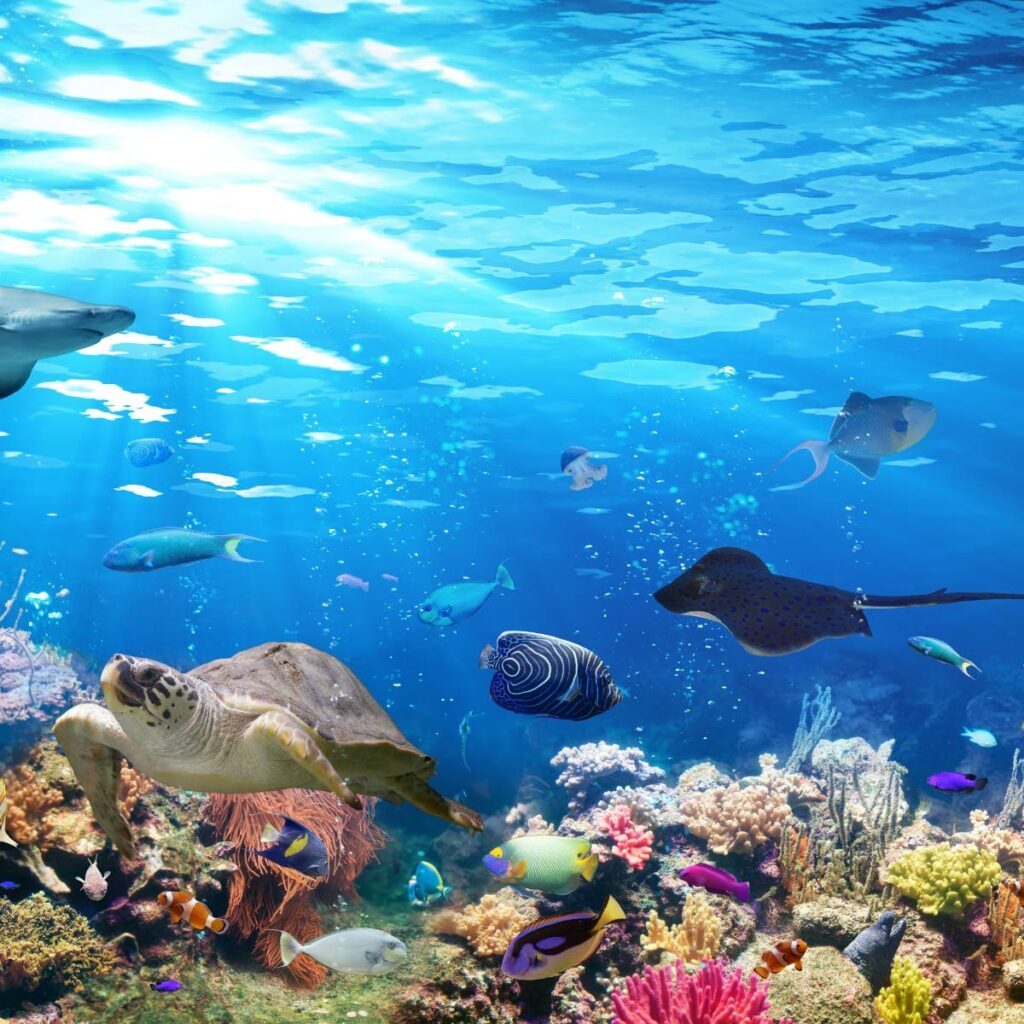Caribbean model for sustainability

The Caribbean's quest for sustainability and environmental stewardship is entering a pivotal phase, underscored by the urgent need to transition from traditional economic indicators like gross domestic product (GDP) to more encompassing frameworks.
This transition is not merely a shift in metrics but a comprehensive realignment of policy, governance and corporate strategy towards sustainability, biodiversity conservation and equitable societal progress. The integration of IUCN’s nature positive for business framework, SDG impact standards and the ISO 37000 governance standard offers a holistic blueprint for this transformative journey.
Environmental imperatives in the Caribbean
The environmental challenges facing the Caribbean are profound. The region's exquisite natural ecosystems, including coral reefs, mangroves and seagrass beds, are not just biodiversity hotspots but vital for the economy, culture and resilience of Caribbean societies.
Yet these assets are under threat from climate change, pollution and overexploitation. A nature-positive approach, advocating actions that contribute to the planet's recovery, is crucial. It demands a shift from minimising harm to actively enhancing biodiversity and ecosystem services.
Beyond GDP: Embracing a fuller measure of progress
The Caribbean's move towards comprehensive measures of progress acknowledges the limitations of GDP.
Comprehensive wealth, including natural, produced, human, financial and social capital, offers a nuanced understanding of national health and sustainability.
This approach, as proposed in a recent article by IISD on Moving Beyond GDP in the Caribbean, foregrounds the value of the Caribbean's biodiversity, urging a balance between economic development and environmental stewardship.
Operationalising the nature-positive framework with SDG impact standards
The nature-positive framework requires operationalising through strategic and governance frameworks that embed sustainability at their core. This approach, particularly resonant in the Caribbean context, champions a clear framework – assess, commit and transform – to guide regional efforts towards biodiversity conservation.
Central to this approach, and underscored at COP15, is the ambitious target of protecting at least 30 per cent of the planet's lands and oceans by 2030 – a goal that is crucial for the Caribbean, given its rich but vulnerable biodiversity. The nature-positive goals are to halt and reverse biodiversity loss by 2030 and achieve full recovery by 2050.
This approach encourages Caribbean nations to assess their ecological footprint and biodiversity dependencies, commit to concrete, actionable targets for conservation and restoration, and transform their policies and practices to achieve a net positive impact on nature at the same time.
This strategic pathway is designed to ensure that the Caribbean can meet the 2030 target, contributing significantly to global biodiversity while fostering sustainable development within the region.
The SDG impact standards provide a pathway for enterprises to align their operations with SDGs, emphasising ethical governance, transparency and accountability. This alignment ensures that corporate activities support biodiversity conservation and ecosystem restoration, paving the way for nature-positive outcomes.
ISO 37000: The governance backbone
The inclusion of ISO 37000, the standard for governance of organisations, in this mix is pivotal. It underscores the importance of robust governance structures in steering organisations towards sustainability. ISO 37000 provides principles and guidelines for governing bodies to make informed, ethical decisions that balance economic, environmental, and social considerations.
By adopting ISO 37000, Caribbean organisations can ensure that their governance practices are aligned with international best practices, enhancing their ability to implement the IUCN nature-positive framework and SDG-impact standards effectively.
Capitals Coalition Natural Capital Approach
The Capitals Coalition’s Natural Capital Protocol offers a methodological framework for businesses to assess their impacts and dependencies on natural capital.
This approach is instrumental in operationalising the IUCN nature-positive framework and can be used as part of the implementation of the SDG-impact standards, enabling companies to make informed decisions that generate biodiversity value. By quantifying interactions with nature, businesses can align their strategies with environmental conservation goals, uncovering opportunities for innovation and sustainable growth.
A comprehensive strategy for sustainability
This strategy for Caribbean sustainability integrates the IUCN’s framework, SDG-impact standards, ISO 37000 governance principles and the Capitals Coalition Natural Capital Approach into a cohesive action plan.
This strategy empowers governments, businesses, and communities to:
– Conduct environmental impact assessments using the natural capital protocol to identify biodiversity dependencies and values.
– Implement governance structures in line with ISO 37000 to ensure decisions are ethical, transparent and measurably contribute to sustainable development.
– Develop and integrate corporate strategies with the SDG-impact standards to operationalise and achieve ambitious sustainability targets.
– Adopt nature-positive actions that enhance biodiversity and contribute to ecosystem resilience.
This holistic approach to sustainability, governance and corporate strategy marks a significant advance in the Caribbean's journey towards a sustainable future.
By embracing comprehensive wealth, operationalising nature-positive frameworks and ensuring robust governance, the Caribbean can navigate the challenges of environmental degradation and climate change. The integration of these frameworks sets a new standard for sustainable development, positioning the Caribbean as a leader in environmental stewardship and equitable societal progress.
As the region moves forward, the collective commitment to these principles will be crucial in realising a sustainable, resilient, and prosperous Caribbean for future generations.
Dr Axel Kravatzky is managing partner of TT-based Syntegra-360 Ltd, vice-chair of ISO/TC309 Governance of Organizations and president of EUROCHAMTT.
He enables companies to flourish through integrated governance, certified management systems and transformational leadership.


Comments
"Caribbean model for sustainability"